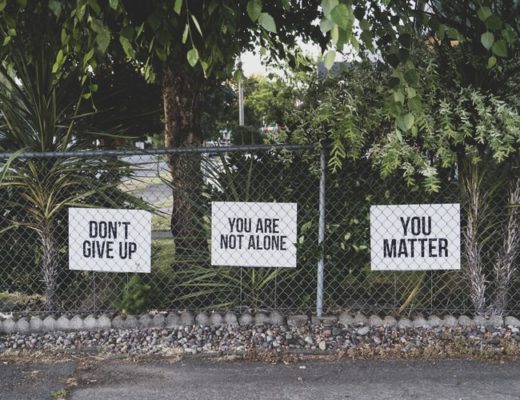We are living in uncertain times. The unprecedented Corona crisis has further added to the total amount of uncertainty in our lives. We have only a very limited idea of what is unfolding. Already the huge upheavals in technology have radically changed the way we live, learn, work and spend time. In this scenario, one community which feels the highest pressure are our students. Though each generation faces its own challenges, what the present generation of students faces is really huge as the new technologies have drastically changed the education scenario unlike any time in the past. This post is an attempt to highlight a few emerging trends as far as education is concerned. As this is an area where each day brings its own surprises, one can only make a few intelligent guesses and every reader can add their own intuitions to this exciting story.
Learning in the internet era
One of the giants of media theory and philosopher, Marshall McLuhan defined technology as an extension of the human body. Perhaps out of all technologies, the Internet may be the most eligible candidate to be called like that as few other technologies have altered our lives as the internet did. Its impact on learning has been really huge and perhaps the new generation may not understand how people were learning before the arrival of the internet. No policy on education in future can be planned without considering the internet as its focal point. However, there is still a reluctance from the policymakers and educational planners to realise the gigantic potential and relevance of the internet in education. In other words, the question is how effectively we are going to use the internet as an effective educational tool.
There are many ways in which the internet provide tremendous advantages to the new age learner. Most important is the ready availability of knowledge and information at one place in an easily retrievable form. Imagine, how handicapped we are now without Google. Secondly, as the internet becomes more and more universal, the relative cost of accessing its vast resources comes down. This is truly democratization of knowledge and for the first time, we have a real possibility to make education truly inclusive. Thirdly, the Internet has shifted the focus of our education from memorising vast amounts of information to processing and applying the same. The most valuable knowledge today is to know ‘where knowledge is available’ rather than struggling to know all. The unlimited resources available on the internet has the capacity to convert everyone into an autodidact and we are seeing it right now. Just, for example, take the case of English language learning. The sheer volume of materials available on the Internet will overwhelm us. From the simple dictionary to the visual thesaurus and from etymology to English tutorials, one can play with the language learning only if he knows where all this is available on the internet virtually free of cost.
In this scenario, one huge focus of education should be to teach our students about how to make full use of the internet. We must also understand that since the internet offers huge advantages for all kinds of learners, those without access to the internet are going to be at a loss and it has a huge social cost. In the earlier days, if there was not much difference between the learning capacity of a person who walks to school and one who comes in a car, the story will be different between pupils with and without access to the internet . Accordingly, any modern nation should be keen on ensuring universal access to the internet to all its citizens to make it an equitable society.
Attention is the new capital
Attention is one word which gained so much prominence in recent decades. Is our capacity for attention under stress now? Do we have too much to attend and too little time? How do we use our time now? Perhaps this is the most important question of our times. Albert Wenger, a German –American Venture capitalist in his book World After Capital, ( the book which the author calls a work in progress follows what he calls a knowledge loop. In the knowledge loop, what one learned is used to create something. This is immediately shared and the feedback is used to improve it further) talks about the different forms of scarcity we faced in a different era. According to him, the technological progress has shifted scarcity for humanity. When we were foragers, food was scarce. During the agrarian age, it was land. Following the industrial revolution, capital became scarce. With digital technologies, the “new scarcity is our attention.” There is a world out there waiting to grab our attention and the commodity most traded now is human attention. Many social media platforms and internet tools are built in such a way that man will always remain distracted. There is a major commercial interest in this merchandise of attention. Every student must understand this aspect also and must decide how much time they have to devote to each activity. Social media and other similar platforms will offer an opportunity for anyone to spend any amount of time online. If you are going to spend all your time there, surely you are sacrificing something else in your life and definitely it may not be worth it. Learning to filter the internet and identifying what is valuable is a major step for any student. In this age of extreme distraction, the winner will be the one who manages his time well.
What only humans can do
Despite being a comparatively weak animal, what helped mankind to subjugate all other animals were some of his unique features. They included features such as a written language, ability to use tools, ability to cooperate, etc. The tool making man has now created a “technopoly” (For this usage , I am indebted to the amazing book by Niel Postman with the same title. Technopoly ) and we are living under its overwhelming presence now. Technology has replaced a host of human functions. It has displaced numerous careers and today we need to negotiate with this technology and learn to live with it. For students, this is a very important question as they make wide speculations about the careers available to them when so many careers are fast being displaced and altered by technology. Here too predictions are not that easy. However, we can almost safely say that careers relating to human health, leisure, technology, creative pursuits etc will remain vibrant. There will be a great demand in future to help people to cope up with an overload of information and technology. The important question will be, what are the unique things which only humans can do. How can we make the best use of technology in improving the quality of life? Garry Kasparov once said, “A good human plus a machine is the best combination.” This means that you need human skills and discretion to turn any technology for the benefit of mankind. We have a unique ability to link things and to find imaginative associations between various subjects of learning. This skill will become handy when we deal with technology and navigate the digital world. You will definitely need the human imagination to make the best use of available technology to solve the basic puzzles in human living. The future belongs to those who can learn and adapt quickly. It belongs to people who can think of new solutions to old problems.
As the internet takes over the world, it offers the possibility that one can sell his talent to the entire world. The takeaway for the student is simple. You focus on whatever you are passionate about. Be realistic about your plans and give it your complete concentration. Make it world-class and if you are good enough people around will take note of you. Remember also that your attention is the most valuable resource now and use it wisely. You are living at an exciting time in history. Don’t be overwhelmed by that, but reflect and try to make sense of everything. Finally, every student must understand that the purpose of education is not only to get a job or only to make money but to become an evolved human being who is capable of appreciating the beauty and infinite possibilities of human life and its worth. A human being who can outgrow his narrow surroundings and understand his true place in this world. Only then he can create a world better than the one he inherited.







3 Comments
Fr. Jijo Kandamkulathy
June 23, 2020 at 5:38 amVery comprehensive and captivating philosophising technique, Bobby. I might disagree with the idea that the internet may be the most life altering technology. I believe humanity went through such phasses earlier that the life they knew changed drastically from the one before the invention of such technologies. Wheel was one such, paper was another, the technology of writing itself! Many of these technologies that we take for granted might have been great life changers in the time of their invention, right?
I loved the way you mention, human attention as the most precious commodity now…
Keep writing. It is an inspiration to read your articles
Boby George
June 26, 2020 at 9:09 pmThank you Father. You encourage me a lot. I too agree that internet is one among the life changing , epic discoveries we have seen in the past including wheel, fire , writing etc. However , living in the present times , we just feel its impact a little more.
Subabu
June 28, 2020 at 12:43 pmSir, this is a great article. Thank you for giving good information.